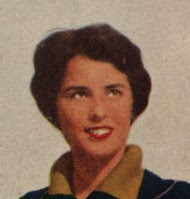Showing posts with label
Experimental - Surreal - Avant-garde.
Show all posts
Katami (original title) | Nobuhiko Ôbayashi | Japan | 1963 | Short, 17 min November 1, 2013 Appreci...
Katami (original title) | Nobuhiko Ôbayashi | Japan | 1963 | Short, 17 min
November 1, 2013
Appreciation Rating: 7.3
José Val del Omar | Spain | 1961 | Short, 23 min November 1, 2013 Appreciation Rating: 7.2
José Val del Omar | Spain | 1961 | Short, 23 min
November 1, 2013
Appreciation Rating: 7.2
อภิชาติพงศ์ วีระเศรษฐกุล | 2013 | Short, 20 min July 9, 2013 Appreciation Rating: 8.4
อภิชาติพงศ์ วีระเศรษฐกุล | 2013 | Short, 20 min
July 9, 2013
Appreciation Rating: 8.4
La coquille et le clergyman (original title) | Germaine Dulac | France | 1927 | Short, 31 min October 28, 2012 The Se...
La coquille et le clergyman (original title) | Germaine Dulac | France | 1927 | Short, 31 min
October 28, 2012
The Seashell and the Clergyman. Directed by Germaine
Dulac (1882-1942). Shot June-September 1927. Premiere at Ciné-Club de France
October 25, 1927. First theatrical exhibition February 9, 1928 at Studio des
Ursulines, Paris. Scenario by Antonin Artuad, revised by Dulac. Photographed by
Paul Guichard. Edited and special effects by Paul Parguel. Cast: Alex Allin
(clergyman), Lucien Bataille (general), Gênica Athanasiou (woman).
In this independent production, often regarded as the first
surrealist film, Dulac employs dream-like environments to probe the mind of a
cleric whose religious vows frustrate his sexual impulses. It was originally
banned by the British Board of Censors, which issued the statement that
"the film is so cryptic as to be almost meaningless. If there is a
meaning, it is doubtless objectionable."
"The film is composed of a series of episodes using
Freudian imagery to express the clergyman's mental anguish. Antonin Artaud,
dissatisfied with the way Dulac handled his script, incited against her at the
Studio des Ursulines. Despite Artaud's dissatisfaction, Dulac's film is a
sincere and honest experiment whose sequences in the streets of Paris are
especially notable."
—French film historian
Georges Sadoul
Peter Greenaway | UK | 1978 | Short, 12 min October 21, 2012
Peter Greenaway | UK | 1978 | Short, 12 min
October 21, 2012
Peter Greenaway | UK | 1976 | Short, 17 min October 21, 2012
Peter Greenaway | UK | 1976 | Short, 17 min
October 21, 2012
Jean Painlevé | France | 1939-45 | Short, 9 min October 20, 2012 Directed by Jean Painlevé (1902-1989). Cine...
Jean Painlevé | France | 1939-45 | Short, 9 min
October 20, 2012
Directed by Jean Painlevé (1902-1989). Cinematography by André Raymond. Music by Duke Ellington ("Echoes of the Jungle").
The doyen of French scientific filmmakers, Painlevé was a specialist in scientific documentaries which became popular with experimental filmmakers and surrealists, who were taken with their wit and the director's eye for mysterious and bizarre details, bringing his own form of poetry and fantasy to his films. An active militant during the Occupation, he fought against the Nazis as a member of the Underground.
Le Vampire begins with clips of animals known for sucking or squeezing their prey dry. After a few shots from Murnau's 1921 Nosferatu, the first significant vampire film, Painlevé introduces his film's star, the South American vampire bat. The bat approaches a guinea pig, seems to kiss it, numbing it, and then begins sucking on its cheek. The guinea pig sits calmly while its blood is drained by the bat. At the end, the bat extends one of his wings in what looks like the Nazi "Heil Hitler" salute. The blood-sucking bat is clearly a metaphor for Nazism.
.JPG)
.JPG)
.JPG)
.JPG)
.JPG)
.JPG)
.JPG)
.JPG)
.JPG)
.JPG)
.JPG)
.JPG)
.JPG)
.JPG)
.JPG)
.JPG)
.JPG)
.JPG)
.JPG)
.JPG)
.JPG)
.JPG)
.JPG)
+1.png)
+2.png)
+3.png)
+4.png)
+5.png)
+6.png)
+7.png)
+8.png)
+9.png)
.png)
.png)
.png)
.png)
.png)
+1.jpg)
+2.jpg)
+3.jpg)
+4.jpg)
+5.jpg)
+1.jpg)
+2.jpg)
+3.jpg)
+4.jpg)
+7.jpg)





+2.jpg)
.jpg)
.jpg)

.jpg)
.jpg)
+2.jpg)
+1.jpg)
+1.jpg)
+4.jpg)

Follow Us
Were this world an endless plain, and by sailing eastward we could for ever reach new distances